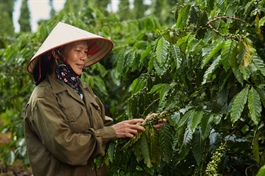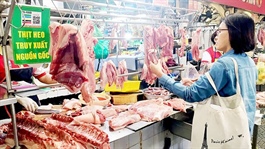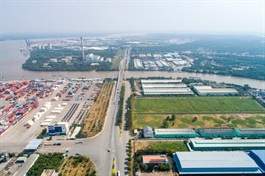VN seeks ways to increase wood products exports to Canada
VN seeks ways to increase wood products exports to Canada
Vietnamese wood processing companies have not made full use of the incentives on offer when exporting to Canada, an online conference heard.

Vietnamese ambassador to Canada, Pham Cao Phong, said at he conference last week that with the Comprehensive and Progressive Agreement for Trans-Pacific Partnership (CPTPP) in force, Vietnamese wood products exports to Canada attract zero tax whereas similar products from China face a 9 per cent tariff.
But not many Vietnamese enterprises know how to take full advantage of this, and many opt to pay 6 per cent instead of furnishing certificates of origin which would exempt them from tax, he said.
Jacques Nadeau of the Food and Agriculture Organization said that the total value of Canadian imports of wooden furniture is around US$14 billion a year, with Viet Nam being the fourth largest supplier after China, the US and Mexico.
While Viet Nam’s share remains modest, it is a prospective market if Vietnamese enterprises know how to use their advantages, according to Nadeau.
"Due to the impact of the Covid-19 epidemic, having to work from home, the demand for both interior and exterior furniture is increasing, especially for furniture and other wooden items for setting up a work office at home."
The Handicraft and Wood Industry Association of HCM City (HAWA) launched the HAWA Online Platform for Exhibition (HOPE) in August to connect Vietnamese wood processing and furniture firms with international and local buyers.
The website features 360-degree images of showrooms, factories and workshops, a 3D product catalogue, social apps to enable 24/7 interaction between exhibitors and visitors, digital marketing, live events, and others.
HOPE will display thousands of products from hundreds of manufacturers and exporters that are verified by HAWA so that buyers could have peace of mind when they select their potential suppliers and connect with the Vietnamese wood and furniture business community, HAWA deputy chairman Nguyen Chanh Phuong said.
HOPE would help Vietnamese wooden products directly approach Canadians, and this would help eliminate the problem of geographical distance between Vietnamese producers and Canadian consumers, but HAWA needs to be proactive and have a communication strategy, according to Nadeau.
HOPE is an effective way to help international buyers find products and suppliers at a time when many trade fairs and exhibitions have been delayed or cancelled due to COVID-19.
Canada's wood products trading season is from April to June and from September to December, and HAWA needs to prepare before them.
It needs to use HOPE to organise online stores and introduce new product sets, while businesses must differentiate between various market segments and take advantage of the CPTPP to compete with similar products from other countries.























